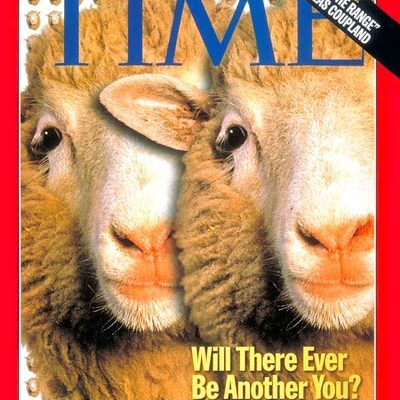Sorry – I don’t read Sci-Fi books, see Sci-Fi films or play Sci-Fi games. Thinking machines of posthuman worlds. Is it because I am woman – already a non-human? Never really hu-MAN but already Other – a little less, a little too-much, not norm(al), not really a part of the One and only. Always already different!
To be honest I find the non-fiction world with all our constitutive companion species much more interesting too explore.
A posthumanist reading does not facilitate a specifically gendered de-coding of humanism and I find a sort of colonial exclusiveness of the chosen fiction examples, a sort of hegemonic undertone leaving socio-material configurations behind in a virtual tug of war. (Hopefully) ‘we’ are not all sci-fi imaginations but entangled naturecultures in new figurations:
http://www.nytimes.com/video/us/100000002496111/dolly-the-sheep.html
Franklin, S. (2007): Dolly Mixtures: The Remaking of Genealogy
Gane, N. (2006): When We Have Never Been Human, What Is to Be Done? Interview with Donna Haraway. In Theory, Culture & Society December 2006 vol. 23 no. 7-8 135-158
Haraway, D. (1992): Ecce Homo, Ain’t (Ar’n’t) I a Woman, and Inappropriate/d Others: The Human in A Post-Humanist Landscape. In In Judith Butler & Joan Wallach Scott (eds.), Feminists Theorize the Political. Routledge 86–100

Leave a Reply
5 Comments on "Post-Dolly-Humanism"
Dear Charlotte. I agree with you endelessly. It is like there is something very “boys room” about comics and superheroes. I will read the article you refer to by Haraway about womanhood and the post-human.
Have you read Hello Dolly, well Hello Dolly: The Double and its theater by Rebecca Schneider. I found it in an anthology called Psychoanalysis and perfomance, edited by Patrick Campbell and Adrian Kear. It is a brilliant text about the politics of cloning that came after Dolly out of fear of patricide and the patriarchal notion of originality.
Thanks Honey! I’ll go Hello Dolly immediately.